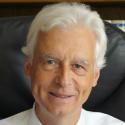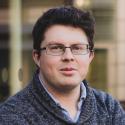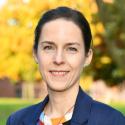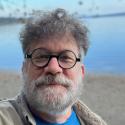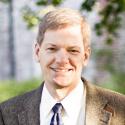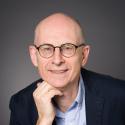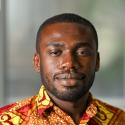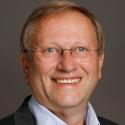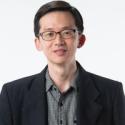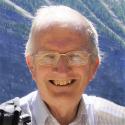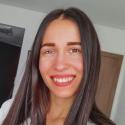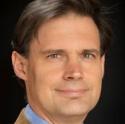2026 Scientists Network
- Image

The European Science Network is committed to two main purposes: (1) Increase the praise of God the Creator-Saviour through what humans study and know in His creation (Col 1:16) and (2) Put scientific findings in the context of His Word so that what we know about His creation will not obfuscate our knowledge of Himself (2 Cor 10:5).
In order to achieve its purposes, the European Science Network is geared to serve two kinds of audiences: (1) Scientists and Christians interested in science will obtain the knowledge, language, and courage to do science and speak about science within the framework of a Bible-informed Christian understanding of the cosmos. (2) Christians of all backgrounds will be helped to understand and interact with scientific findings and claims in a way that is truly apologetic, integrating scientific facts into the Christian worldview in an affirmative, active way rather than only defensively and reactively. At the same time, the demarcation lines will be demonstrated between scientific facts and their interpretation by naturalistic vs. Christian worldviews. We do not shy away from sensitive subjects like the evolution debate and ethical implications, engaging in constructive, respectful discussions.
What Network Participants Are Saying
- "As a Christian and biochemist, I am deeply thankful for the opportunity to meet fellow scientists and benefit from biblical view on science. In my home, I have never met a fellow scientist who is a believer. Your generosity allowed me to meet and form new friendships in this field."
- Rahela Petrovcic, student, M. Sc. biochemistry, Slovenia - "Attending the Forum’s Scientists Network was an incredibly enriching experience, one that has broadened my horizons and expanded my knowledge in ways I could not have imagined. It has also had a profound impact on my personal and spiritual growth. The opportunity to interact with amazing professionals, researchers, and experts in the field of science has been invaluable. The Forum has provided a platform for me to learn about the latest advances, emerging trends, and cutting edge research on intelligent design, artificial intelligence, and neuroscience, all linked to God. The insights and knowledge I’ve gained will shape my future endeavors and enhance my contribution to my field."
- Dana Stanciu, Pharmacy Resident and PhD Student, Romania - "First, I am inspired by the example of other scientists who are part of the Forum’s Scientists Network. My motivation is strengthened and I am encouraged to continue to improve in my own work. The lectures and workshops provide great content and help keep my knowledge up to date. Finally, I have access to valuable resources like books and mentoring throughout the year."
- Ilona Simon, Assistant Professor, Hungary
Applicants should be involved in full-time scientific work or have a strong interest and background in the integration of science and Christianity. This Network will be led by Alexander Fink, Director of the Institute for Faith and Science, and Peter Imming, Professor of Pharmaceutical Chemistry in Germany.
*Note: Participants are strongly encouraged to view the talk "The 7 Best Arguments from Science for the Existence of God for Everybody to Understand" and to read the book “Cosmic Chemistry” by Prof. John Lennox. These give an introduction to some basic convictions the Scientists Network has and which cannot be presented every year.
Network Leadership
Network Speakers
Zachary Ardern is a research fellow in microbial evolutionary genomics - investigating the origins and evolution of proteins and gene regulation. He completed BA|BSc conjoint degrees and a PhD in experimental evolution at the University of Auckland, New Zealand and has subsequently conducted… Read more
Sarah Cardaun is a scholar from Germany with a broad range of research interests in political science, public administration and public policy with a focus on security and resilience. She has taught various subjects at universities in the UK, Brazil and Germany. Since 2019, Sarah has been… Read more
Charlie Catlett is a senior computer scientist at Argonne National Laboratory and The University of Chicago who has focused his research for 40 years in the development of the Internet and WorldWideWeb, computer security, and high-performance computing, holding scientific leadership positions at… Read more
Dr. Jack Collins retired from full-time teaching in 2025 after 32 years of faithful service. During that time his deep love for the Bible and language scholarship informed his work of training pastors and church leaders. He served as the Old Testament chair on the translation committee for the… Read more
Alexander Fink is Director of the Institute for Faith and Science (Institut für Glaube und Wissenschaft) in Marburg, Germany (www.iguw.de). He studied physics at Bayreuth and St. Andrews (UK) universities and received his PhD at the Institute for Biophysics at… Read more
Sverre Holm is a professor emeritus of physics at the University of Oslo, where he has been a professor since 1995. He has mainly worked with medical ultrasound imaging and wave propagation and is a member of the Norwegian Academy of Technical Sciences (NTVA). He is on the panel for the popular… Read more
Peter Imming received degrees in pharmacy and chemistry and a PhD and venia legendi in pharmaceutical chemistry from a German university. He has been involved in drug chemistry teaching and research in Germany, the UK, China, Ethiopia and other countries. Until retirement in 2025, he was head of… Read more
Desmond Koomson is a postdoctoral researcher in King’s College London, where he will also complete his PhD researching on enhancing biocatalysis with electrons in January 2026. He obtained his undergraduate degree from the University of Cape Coast, Ghana (2015), followed by his master's degree… Read more
Peter Korevaar studied physics and astronomy at the University of Utrecht, Netherlands. In 1989, he acquired his PhD in astronomy on the topic of "Time-dependent models of stellar coronae". After two years at the University of Heidelberg, Germany, in 1991 Peter accepted a position at IBM. Since… Read more
Dr. Andrew Loke is an elected Fellow of the prestigious International Society for Science and Religion and Associate Professor in the Department of Religion and Philosophy at Hong Kong Baptist University. He has published seven monographs with world-leading academic publishers in the fields of… Read more
Andy McIntosh holds an Emeritus chair in Thermodynamics at the University of Leeds and is also an adjunct professor of Engineering at Liberty University in Virginia. He has had a long scientific research career concerning mathematics, combustion and aeronautics, both in academia and in a… Read more
Delia Vasilca is a passionate engineer with a deep love for science, nature, and exploring the connection between faith and science. She works as a simulation engineer for ZEISS, a leading German company, where she contributes to one of the most advanced engineering projects in the world: the… Read more
Peter J. Williams is the Principal and CEO of Tyndale House, Cambridge. He was educated at the University of Cambridge, where he received his MA, MPhil, and PhD in the study of ancient languages related to the Bible. After his PhD, he was on staff in the Faculty of Divinity at the University of… Read more
Network Programme
Sunday, 17 May
Without knowing it, during a typical day, we all encounter many of the most important natural scientists from history. Surprisingly, the Christian faith meant something personal to many of them, as illustrated by their own words in this talk. Among them is Galileo about whose personal faith we don’t know much. But a persistent myth is that he had proven that the Earth revolves around the sun. Galileo himself knew very well that he had not. Scientifically Tycho Brahe's geoheliocentric model was held to be the correct one long after Galileo had passed away. It is therefore impossible to comprehend the Galileo affair without understanding Brahe's model.
In this session, two young scientists present arguments for design from their research.
In ‘God's Engineering Genius: Evidence for God's Creativity and Ingenuity’, Delia Vasilca asks, What do a ship built to survive a global flood and the flight of a hummingbird have in common? Both are marvels of engineering–and both point to the wisdom of their Designer. What can we learn about God from the precision, complexity, and creativity we find in Scripture and in nature? Drawing from both biblical accounts and examples from the natural world, this talk invites us to see the fingerprints of divine engineering all around us.
In ‘A Chemist’s Evidence for a Creator’, Desmond Koomson takes participants on a journey through the fascinating world of chemistry to explore life’s deepest questions. From the fine-tuning of carbon in stars to the elegant order of the periodic table, this talk shows how science can reveal design, purpose, and beauty in nature. Drawing on historical and modern examples of chemists who saw science as revealing the mind of God, the talk invites reflection on how faith and science can coexist, inspiring meaning, ethics, humility, and wonder in God and the world around us.
Monday, 18 May
Most underlying values and core principles of scholarly research are good and praiseworthy. However, just like everything else, when detached from a relationship with God, many of them can become misguided and dysfunctional. In this joint interactive session with the Academic and Scientists Networks, we will take a critical yet hopeful look at spiritual challenges and opportunities that arise in our individual and collective pursuits of scientific knowledge. We will share experiences and insights on how Christians working in academia can cultivate an ethos rooted in trust and dependence on the Lord, rather than relying solely on their own abilities.
This joint session with the Theologians and Scientists Networks focuses on the exegetical, biblical side of the creation debate. Three biblical scholars–Peter J. Williams, Andrew Loke, and Jack Collins–will present their linguistic and theological arguments on how Genesis and the creation texts in Scripture should be understood. These presentations will be followed by a moderated panel discussion and then Q&A from the audience.
Tuesday, 19 May
In this session, Andy McIntosh, Zachary Ardern, and Peter Korevaar present three scientific perspectives on the Genesis debate, seeking to address the following questions:
- How do science and Genesis declare a young earth?
- Evolution by design?
- Can an old universe sit well with Genesis?
Alexander Fink and Peter Imming moderate a debate between Andy McIntosh, Zachary Ardern, Peter Korevaar, Andrew Loke, Jack Collins, and Network participants over the three views on Genesis presented in the previous session.
Wednesday, 20 May
This session will cover the scientific concepts underpinning artificial intelligence and recent innovations that have enabled entirely new capabilities. We will include examples of exciting applications and discuss the limitations and potential misuse of AI. A key objective is to equip scientists to fully and appropriately harness new AI applications and to bring a Christian perspective to discussions about the use of AI.
The last session together will focus on what we have learned this week and how to apply it in our contexts. Participants will have an opportunity to share their thoughts with others for encouragement and feedback. This session will bring together the key points that have emerged across the four days with some curated time that will help embed key learnings at an individual and group level.

